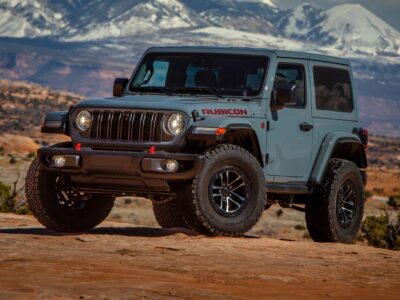
Ford Fiesta Juddering When Accelerating: Full Diagnosis & Fix Guide

When our Ford Fiesta starts juddering during acceleration, it feels like the car is speaking its own uncomfortable language—little shivers, stutters, and hiccups that tell us something isn’t quite right. We’ve all been there: foot down on the pedal, expecting smooth pull… and suddenly the Fiesta shakes like it's shivering on a cold morning.
In this guide, we dive deep—really deep—into the core causes, diagnostics, and real-world fixes. We keep it relaxed, conversational, and loaded with insights so you can truly understand not just what is happening, but why. Think of it as sitting in a garage with us, coffee in hand, while we unpack your Fiesta’s jittery secrets.
- Understanding What “Juddering” Really Means
- Most Common Causes of Ford Fiesta Juddering When Accelerating
- Ignition System Failures
- Fuel Injection Problems
- Air Intake Problems
- MAF and MAP Sensor Issues
- EGR Valve Malfunctions
- Fuel Filter Blockage
- Low-Quality or Contaminated Fuel
- Clutch Slipping (Manual Fiestas)
- Powershift / Automatic Transmission Problems
- Engine Mount Wear
- Driveshaft or CV Joint Issues
- Turbocharger Problems (EcoBoost Models)
- How to Diagnose Juddering at Home
- Real-World Scenarios and Fix Paths
- Maintenance Tips to Prevent Juddering
- When to Visit a Mechanic
- Final Thoughts
- FAQs
Understanding What “Juddering” Really Means
Juddering isn’t one single symptom—it’s a spectrum. Your Fiesta might briefly shudder at low speeds, shake during hard acceleration, or vibrate only when climbing a hill. Each flavour of judder points to a different culprit.
In general, juddering is the engine, drivetrain, or fuel system struggling to keep power delivery smooth. It’s the automotive equivalent of someone trying to speak while hiccupping.
Most Common Causes of Ford Fiesta Juddering When Accelerating
Before we dive into the specifics, here’s a quick snapshot of the usual suspects:
- Failing ignition coils or spark plugs
- Dirty or failing fuel injectors
- Air intake restrictions or split hoses
- Blocked or sticking EGR valve
- Low-quality fuel or contamination
- Clutch slip (manual Fiestas)
- Failing DSG / Powershift components
- Blocked fuel filter
- Faulty MAF or MAP sensor
- Worn engine mounts
- CV joint or driveshaft issues
Now let’s break each one down.
Ignition System Failures
Why Bad Coils and Plugs Cause Juddering
The Fiesta—especially the EcoBoost and older Zetec engines—is notorious for coil pack failures. When a coil misfires, power delivery becomes patchy, causing the car to judder under load.
Key Warning Signs
- Engine shakes at idle
- Judder during uphill acceleration
- Strong fuel smell
- Engine light flashing
How to Diagnose
- Swap coils between cylinders
- Scan with OBD-II
- Check spark plug wear
Fix
Replace the failing coil(s) and plugs. Always replace spark plugs as a full set.
Fuel Injection Problems
Dirty or Clogged Injectors
A clogged injector disrupts fuel spray patterns, creating mini power drops under load—felt as a judder.
When It Happens Most
- After using low-quality fuel
- After long storage
- On high-mileage Fiestas
The Quick Fix
Run a high-grade injector cleaner.
The long-term fix: ultrasonic cleaning or replacing injectors.
Air Intake Problems
Air Leaks and Split Hoses
EcoBoost engines especially love to split intake hoses. A small tear equals inconsistent airflow, leading to… you guessed it—juddering.
Detecting It
- Hissing sound during acceleration
- Underboost codes
- Poor throttle response
Fix
Inspect and replace hoses, check clamps, and inspect the intercooler.
MAF and MAP Sensor Issues
Why They Matter
These sensors tell the ECU how much air is entering the engine. If they’re sending bad data, fuel delivery becomes uneven.
You may be interested in reading Ford Fiesta Jerks When Accelerating: Complete Diagnosis & Repair Guide
Ford Fiesta Jerks When Accelerating: Complete Diagnosis & Repair GuideSigns
- Hesitation on throttle
- Judder only when accelerating
- No engine light (often!)
Fix
Clean the sensors with proper MAF cleaner or replace if readings are inconsistent.
EGR Valve Malfunctions
What Happens When EGR Sticks
A stuck EGR valve dumps exhaust gas into the intake at the wrong time, choking the Fiesta mid-acceleration.
Symptoms
- Juddering at low RPM
- Excess smoke
- Weak pull under load
Fix
EGR removal and cleaning, or replacement.
Fuel Filter Blockage
How It Causes Juddering
If the filter can’t keep up with fuel demand, your Fiesta starves during acceleration.
Common Indicators
- Juddering above 2,000 RPM
- Difficulty starting under load
- Jerky acceleration
Fix
Replace the fuel filter—simple and effective.
Low-Quality or Contaminated Fuel
Symptoms of Bad Fuel
- Sudden onset of judder
- Worse performance with a full tank
- Misfires after refueling
Fix
Fuel system cleaner + refuel with high-quality petrol. Severe cases require draining the tank.
Clutch Slipping (Manual Fiestas)
How It Feels
Instead of clean acceleration, the engine revs climb but the speed lags. The car shudders at the engagement point.
Typical Starting Points
- High gears
- Uphill starts
- Quick accelerations
Fix
Clutch replacement—there’s no temporary shortcut.
Powershift / Automatic Transmission Problems
DSG/Powershift Quirks
Ford’s Powershift dual-clutch system is known for shudder under acceleration when the clutch packs wear.
Key Symptoms
- Judder at low speeds
- Hesitation when selecting gears
- Grinding sensation
Fix
- Transmission service
- Clutch pack replacement
- Mechatronic repairs
Engine Mount Wear
Why It Causes Judder
When mounts weaken, acceleration transfers vibration to the cabin. It feels like judder but originates mechanically, not from misfires.
Signs
- Cabin shakes at low RPM
- Hard gear shifts
- Excess engine movement
Fix
Replace the worn engine mount(s).
Driveshaft or CV Joint Issues
Judder at Speed
If the Fiesta vibrates or judders mainly during acceleration but smooths out when cruising, this can be a worn CV joint or inner driveshaft bearing.
Warning Signs
- Clicking on turns
- Vibration under heavy throttle
- Grease around wheels
Fix
Replace the affected driveshaft or CV joint.
You may be interested in reading Ford Fiesta Jerks When Accelerating: Complete Diagnosis & Repair Guide
Ford Fiesta Jerks When Accelerating: Complete Diagnosis & Repair Guide Common Audi A1 1.6 TDI Problems, Symptoms, and Fixes: The Definitive Expert Guide
Common Audi A1 1.6 TDI Problems, Symptoms, and Fixes: The Definitive Expert GuideTurbocharger Problems (EcoBoost Models)
Underboost = Juddering
A failing turbo, sticking wastegate, or cracked pipe causes power surges or dips during acceleration.
Typical Signs
- Whistling or whooshing
- Turbo lag
- Loss of power at higher RPM
Fix
Repair boost leaks, actuator issues, or replace turbo.
How to Diagnose Juddering at Home
Quick 5-Minute Checklist
- Listen for misfire
- Check dashboard warnings
- Inspect intake hoses
- Look for leaking oil or fuel
- Scan with OBD-II
If You Want To Go Deeper
- Compression test
- Fuel pressure test
- Smoke test intake system
- Ignition coil resistance tests
Real-World Scenarios and Fix Paths
Scenario 1: Juddering Only Under Hard Acceleration
Likely causes:
- Boost leaks
- Fuel starvation
- Weak ignition coil
- Sensor faults
Scenario 2: Juddering at Low Speeds
Often:
- EGR sticking
- Engine mount wear
- Powershift clutch issues
Scenario 3: Juddering After Refueling
Commonly:
- Bad fuel
- Injector clog
- Fuel contamination
Maintenance Tips to Prevent Juddering
- Replace spark plugs every 20–30k miles
- Use high-quality fuel
- Change the fuel filter regularly
- Inspect hoses annually
- Clean MAF sensor every 10k miles
- Service Powershift transmissions
- Replace coil packs proactively on EcoBoost
A little prevention goes a long way—like brushing your teeth so you don’t deal with a root canal later.
When to Visit a Mechanic
If any of these apply, seek help:
- Juddering with flashing engine light
- Sudden and severe vibration
- Burning smells
- Loss of power beyond mild hesitation
- Car cuts out under acceleration
Trust us: ignoring these signs is like pretending a fire alarm is “probably nothing.”
Final Thoughts
A Ford Fiesta juddering during acceleration is annoying, concerning, and often embarrassing—especially when you’re trying to merge and the car decides to shake like jelly on a trampoline. But the good news? Most causes are diagnosable and fixable without massive expense.
Now that you understand the root causes, warning signs, and solutions, you're well-equipped to get your Fiesta running like the smooth, eager little hatchback it was designed to be.
FAQs
Why does my Ford Fiesta shake when accelerating?
Most often: ignition coil issues, split intake hoses, injector problems, or sensor malfunctions.
Can a bad fuel filter cause juddering?
Absolutely. A clogged filter starves the engine, causing power drops under load.
Is juddering dangerous?
It can be—especially if caused by misfires, drivetrain issues, or transmission faults.
You may be interested in reading Ford Fiesta Jerks When Accelerating: Complete Diagnosis & Repair Guide
Ford Fiesta Jerks When Accelerating: Complete Diagnosis & Repair Guide Common Audi A1 1.6 TDI Problems, Symptoms, and Fixes: The Definitive Expert Guide
Common Audi A1 1.6 TDI Problems, Symptoms, and Fixes: The Definitive Expert Guide Audi A1 Glow Plug Light Flashing: The Complete Guide to What It Means & How to Fix It
Audi A1 Glow Plug Light Flashing: The Complete Guide to What It Means & How to Fix ItDoes bad fuel make a Fiesta judder?
Yes, contaminated or low-quality fuel can instantly cause hesitation and rough acceleration.
Is it safe to keep driving?
You can, but you shouldn’t. Juddering often signals a deeper issue that could escalate quickly.
If you want to know other articles similar to Ford Fiesta Juddering When Accelerating: Full Diagnosis & Fix Guide you can visit the category Common Problems.
Leave a Reply

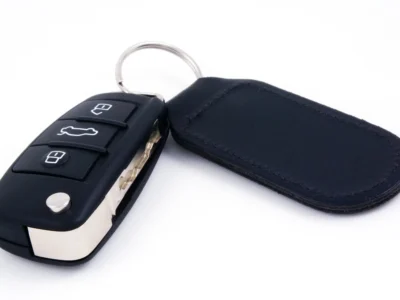
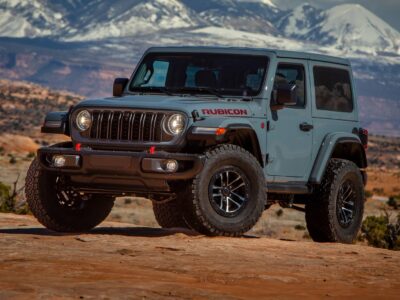
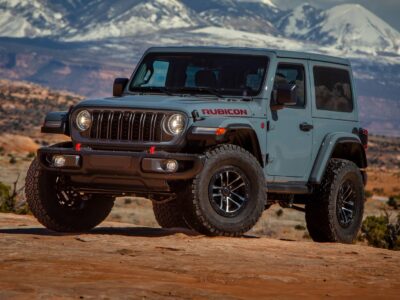
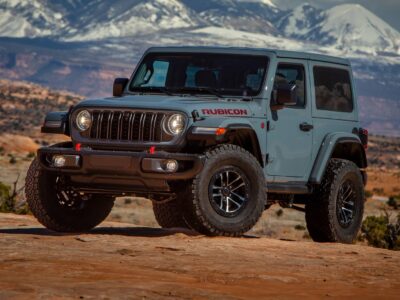
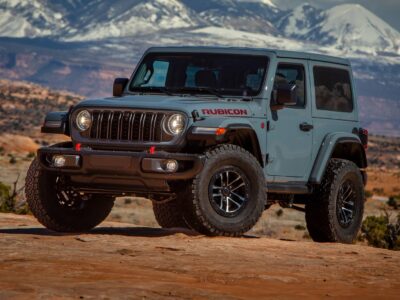
More content of your interest